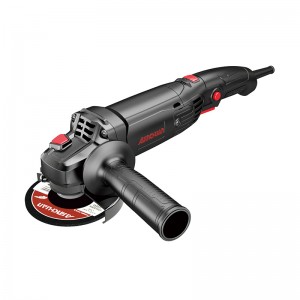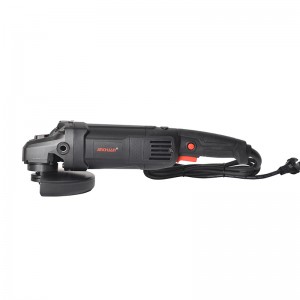In the European market, small tool manufacturers and suppliers need to pay special attention to the ERP (Ecodesign and Energy-related Products) directive of the European Union. The ERP directive aims to reduce the environmental impact by enhancing the energy efficiency and environmental performance of products. This article will explore the specific requirements of ERP directives for small tools and their impact on manufacturers and suppliers, helping you better understand and respond to these changes.
First, an overview of ERP instructions
The ERP Directive (Ecodesign and Energy-related Products) is a regulation of the European Union, aiming to reduce the impact on the environment by improving the Energy efficiency and environmental performance of products. This directive applies to all consumer goods related to energy, including small tools. The ERP directive not only focuses on the energy efficiency of products, but also covers the environmental impact throughout the entire life cycle of products, including design, production and recycling.
Second, the specific requirements of the ERP directive for small tools
1. Energy efficiency
The ERP directive requires that energy efficiency must be taken into account in the design and manufacturing process of small tools. This means that tools should minimize energy consumption as much as possible during use while maintaining efficient performance. For instance, power tools should adopt efficient motors and energy-saving battery technologies to reduce energy waste.
2. Environmentally friendly design
The ERP directive also requires that environmental protection factors be considered in the design stage of small tools. This includes the use of recyclable materials, reducing the use of harmful substances and optimizing the service life of products. For example, the design of tools should be easy to disassemble and recycle to reduce the generation of waste.
3. Labels and Information
The ERP directive requires manufacturers to provide clear labels and information on their products to help consumers understand the energy efficiency and environmental performance of the products. These labels should include energy consumption, environmental protection grades and recycling information, etc. For instance, the labels of power tools should clearly indicate information such as battery life, charging time and energy consumption.
Third, the impact of ERP directives on manufacturers and suppliers
1.Design and manufacture
The ERP directive puts forward higher requirements for the design and manufacture of small tools. Manufacturers need to take energy efficiency and environmental protection factors into account at the product design stage and adopt advanced technologies and materials. This might require an increase in R&D investment to develop more efficient and environmentally friendly products. For instance, manufacturers of power tools may need to adopt more efficient motor and battery technologies to meet the requirements of ERP directives.
2. Production and supply chain management
The ERP directive also sets requirements for the production and supply chain management of small tools. Manufacturers need to ensure that the procurement of raw materials complies with environmental protection standards and reduce the use of harmful substances. Meanwhile, energy consumption and waste discharge during the production process should also be strictly controlled. For instance, manufacturers may need to optimize their production processes to reduce energy waste and the generation of waste.
3. Market Access
The ERP directive sets out clear requirements for market access of small tools. Only products that comply with the ERP directive can enter the EU market. This requires manufacturers and suppliers to ensure that their products comply with relevant standards; otherwise, they will face restrictions on market access. For instance, power tools that do not comply with the ERP directive will not be able to be sold in the EU market.
Fourth, suggestions for responding to ERP instructions
1.Understand and comply with ERP instructions
Manufacturers and suppliers should have a thorough understanding of the specific requirements of the ERP directive and ensure that their products comply with relevant standards. This includes requirements in aspects such as energy efficiency, environmental protection design, labels and information. It is recommended to pay regular attention to the updates of EU regulations and adjust product design and production processes in a timely manner.
2. Optimize product design and manufacturing
Manufacturers should optimize product design and manufacturing processes, adopt advanced technologies and materials, and enhance the energy efficiency and environmental performance of their products. For instance, power tool manufacturers can adopt more efficient motor and battery technologies to reduce energy consumption and waste generation.
3. Strengthen supply chain management
Manufacturers should enhance supply chain management to ensure that the procurement of raw materials complies with environmental protection standards and reduce the use of harmful substances. Meanwhile, energy consumption and waste discharge during the production process should also be strictly controlled. It is suggested to establish a long-term cooperative relationship with suppliers to jointly promote environmental protection and sustainable development.
4. Provide clear labels and information
Manufacturers should provide clear labels and information on their products to help consumers understand the energy efficiency and environmental performance of the products. These labels should include energy consumption, environmental protection grades and recycling information, etc. It is recommended to train sales personnel regularly to ensure that they can accurately convey the relevant information of the products to consumers.
Fifth, Conclusion
The ERP directive places higher demands on small tool manufacturers and suppliers, aiming to reduce their environmental impact by enhancing the energy efficiency and environmental performance of their products. Manufacturers and suppliers need to have a thorough understanding of the specific requirements of ERP directives and take corresponding measures to optimize product design and manufacturing processes, strengthen supply chain management, and provide clear labels and information. Through these efforts, not only can regulatory requirements be met, but also the market competitiveness of the products can be enhanced, making contributions to sustainable development.
Post time: Jun-10-2025


